Curtis Proske’s story of precision and performance.
I’ll be the first to admit I make assumptions about people, and they aren’t always right. Take Curtis Proske for example. His words are drawn from a Texas upbringing and his initial mannerisms are gentlemanly. He’s hanging out with Nicolas Irving, also known as Reaper 33. Irving’s story is remarkable, and will be told in a soon to be released book called, “Reaper”. So now I don’t know what to think. After a few minutes with Curtis I get the feeling he can read my emotions very well, so I stop making assumptions and start paying attention to what he has to say.
I got one thing right – Curtis Proske grew up in Central Texas where life revolves around hunting, fishing, and most importantly, guns and family. Beyond guns and the outdoors, this guy understands metal technology and manufacturing processes on another level. After high school Curtis attended Texas A&M University. Transitioning from high school can be a very frustrating time for most young men and women. You sometimes have an understanding of what you’d like to do, but you’re never sure what the bigger picture is. Curtis knew he wanted to understand manufacturing and mechanical engineering, but he wasn’t completely clear why.
After graduating with a degree in engineering, Curtis entered the aerospace industry where he became a welding engineer and developed processes that reduced costs of manufacturing. He focused on improving quality from a metallurgical and weld joint integrity point of view. I know, big words…stick with me, it gets interesting. In the aerospace industry you’re amongst the best and brightest and it’s really hard to stand out. Curtis felt like his concepts and ideas were being overlooked. He decided to move back to the Houston, Texas area and try his talents out in the oil and gas industry. There he was able to develop skills that were more cutting-edge by combining his experience in the aerospace industry and manufacturing skills. He quickly developed processes and invented innovative mechanical designs like new equipment and formulations for bi-metal castings that resulted in industry leading performance. During this time he received patents in areas like nanobond brazing and infiltration methods for forming drill bits. He was soon asked to move to China to build a manufacturing plant and then manage it. While working in China, Curtis went to Japan to study under Sensei Chihiro Nakao, one of the last living disciples of Ohno Taiichi, the founder of the Toyota Production System.

Curtis is very thankful and proud of his time spent in China, but there’s nothing like living in China to re-invigorate a respect and a love for the God-given rights that we possess in the U.S. He returned to Houston and joined the corporate ranks, but it wasn’t what he expected. Curtis explains, “As I climbed the rungs of the ladder in Big Corporate (America) I began to see the lack of integrity and corruption there. The lack of any regard for the people doing the work on the lowest level, and how their careless, greedy decisions would affect the lives of these people and their families. This is when I really learned what Crony Capitalism is. I’m a fan of good ol’ fashioned capitalism that works to not only make a good living but to better the lives of the families that work for your company, the community your company is in, the State and its regulations that affect other communities, as well as the Industry on the whole. I just couldn’t be a part of the crony world, so I threw away the big salary and jumped both feet into an industry that I love and have a passion for.” The first thing he wanted to do when he got back was to get out to the ranch and do some shooting. He says, “That perfect fall Texas day when I pulled the trigger for the first time in years sent shock waves through my universe and that was the birth of Templar Tactical Firearms.”
Curtis approaches his designs and manufacturing from an ergonomical, environmental, functional, reliability, economical, metallurgical, and extreme use standpoint. All Templar Tactical suppressors are 100% aerospace grade titanium that are designed for precision shooting and extended long range shooting. Here’s the real cool thing: these are .30 caliber suppressors that are rated from .22LR up to .300 Win Mag. For most shooters, this means you can obtain one suppressor for all your platforms. Curtis designs and manufactures a one-piece brake attachment that allows this to happen. Additionally, Curtis has solved the A2 Flash Hider attachment issues by completely eliminating the need to indicate off the flash hider. His design replaces the traditional crush washer with a precision-machined threaded adapter that precisely aligns the suppressor to the bore of an AR15. The flash hider with threaded adapter is reinstalled on the barrel which provides the mounting point for the suppressor. If you’re serious about accuracy and desire minimal point of impact (POI) shift, direct connecting (thread on) is the way to go.
I’m very fortunate in that I see, hear, touch, and use a lot of technology associated with the defense, outdoor, and tactical industry. I’m also exposed to other professionals who have come before me and are much more experienced in understanding what works and what has the potential to work. It’s these experiences I use and rely on to make a determination if something adds value. After spending four days with Curtis and his applications, I’m comfortable saying his engineering approach and technology are some of the best our country has to offer.


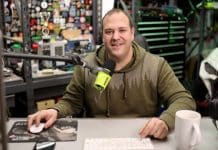
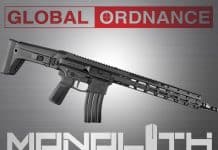
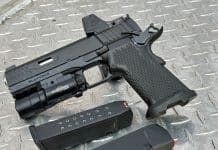
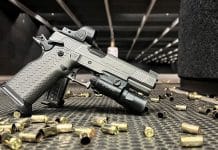


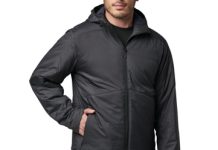
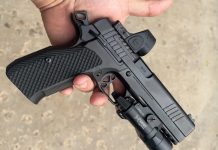
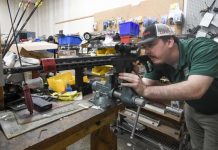
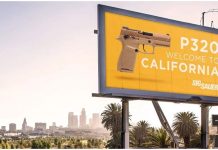
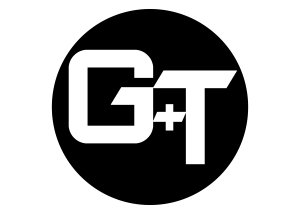
Great suppressors, TERRIBLE customer service. Highly, highly recommend you stay away if only for the 50% cancellation fee.
As a high power long range shooter, accuracy is number one and you can not find a more accurate or versatile suppressor, on the market today than the Templar Tactical Suppressor.
Thank you,
Christian Swann
[…] Go to this article […]
Comments are closed.